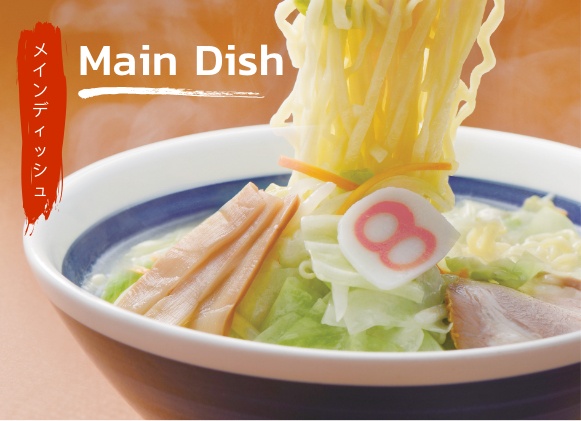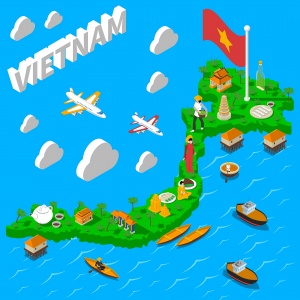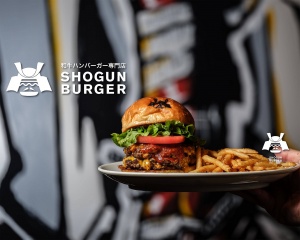Hachi-Ban aims to expand presence in Thailand and Vietnam
 |
Based in Kanazawa, Japan, the company is preparing to inaugurate a new facility in Thailand, while simultaneously resuming its restaurant expansion efforts in Vietnam, according to Nikkei Asia.
With a higher number of outlets in Southeast Asia compared to its home market, Hachi-Ban is firmly committed to amplifying its regional growth trajectory.
The fresh plant in Thailand, scheduled to commence operations in September, aims to facilitate the company's second foray into the country, enabling an ambitious 70 per cent surge in restaurant numbers – to a total of 250. Presently, Hachi-Ban operates 159 restaurants across Southeast Asia, surpassing its domestic figure of 115.
Hachi-Ban's journey into Southeast Asia was somewhat serendipitous, ignited by a chance encounter with a Thai textile firm that embraced the essence of its ramen dishes during a visit to Japan.
This led to a pioneering franchise agreement and the launch of the first overseas Hachi-Ban eatery in Bangkok in 1992.
Surprisingly, the company's main target market became Thais rather than Japanese expatriates, with a commitment to crafting locally sourced ramen in Thailand.
A cornerstone of Hachi-Ban's success lies in its central kitchen, a critical element in tailoring the taste and price points to the Thai palate.
Supported by advanced food processing equipment, the forthcoming expansion of its central kitchen in Bangkok will uphold this approach as the company strives to broaden its Thai footprint.
The company's expansion goal also extends to Vietnam, where it recently embarked on a series of restaurant openings.
Despite facing initial setbacks due to the pandemic, the company marked its triumphant return to the Vietnamese dining scene with a new restaurant launch in April. It aims to elevate its outlet count to 50 by year-end.
With its firm grip on Southeast Asia's culinary landscape, Hachi-Ban is curiously yet to establish a presence in Tokyo. The popularity of its ramen in the region is attributed to its affordability and adaptability to local tastes.
Collaborating closely with regional partners, Hachi-Ban customises its menu offerings, with regional specialities constituting 30 per cent of the product line up and driving significant sales.
 | Singapore's GIC sets sights on Vietnam, India, and Indonesia Singapore's sovereign wealth fund, GIC, is shifting its investment strategy to focus more on emerging markets like India, Indonesia, and Vietnam. The move was prompted by escalating tensions between the United States and China in a bid to navigate potential trade and capital flow restrictions. |
 | Japanese burger chain Shogun Burger opens its first outlet in Vietnam Shogun Burger, the acclaimed Japanese burger chain, has entered the international market with its first location in Vietnam, targeting the local Japanese community and tourists, while also offering unique burger options tailored to Vietnamese preferences. |
What the stars mean:
★ Poor ★ ★ Promising ★★★ Good ★★★★ Very good ★★★★★ Exceptional
Related Contents
Latest News
More News
- VietShrimp Asia connecting the aquaculture value chain (January 29, 2026 | 08:00)
- Vietnam among the world’s top 15 trading nations (January 28, 2026 | 17:12)
- Advanced semiconductor testing and packaging plant to become operational in 2027 (January 28, 2026 | 17:10)
- Japanese business outlook in Vietnam turns more optimistic (January 28, 2026 | 09:54)
- Vietnam highlighted in best alternative study abroad destinations (January 27, 2026 | 15:49)
- VIMC targets higher profit and throughput in 2026 (January 26, 2026 | 19:00)
- Relocating efficient resources is a competitive advantage (January 26, 2026 | 10:12)
- Vietnam forecasts rice exports of 7.73 million tonnes in 2026 (January 22, 2026 | 20:17)
- YeaH1 Group and Sony Music launch joint venture (January 22, 2026 | 13:32)
- 'The Palm Oil Story' explores Malaysia’s industry and global role (January 21, 2026 | 18:12)

 Tag:
Tag:
















 Mobile Version
Mobile Version